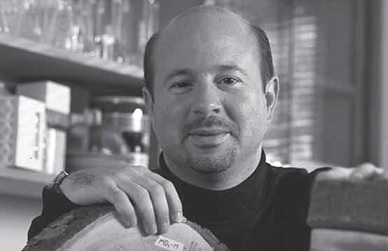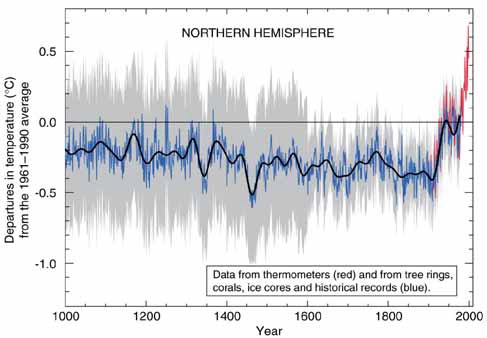An uncontrolled experiment with the Earth
abracad, · Categories: environment, externally authoredRenowned climate change expert, Michael Mann, says the burning of fossil fuels has brought humanity past the critical 400 parts per million threshold of CO2 in the atmosphere, and urges citizens to make their voices heard on the climate change issue.
Jason Francis interviewed Michael Mann for Share International, November 2013

Michael Mann is a physicist, climatologist and world-renowned climate change expert. He was a contributor to the Third Scientific Assessment Report of the influential Intergovernmental Panel on Climate Change (IPCC) in 2001. Along with former US Vice President Al Gore, the IPCC was a recipient of the Nobel Peace Prize in 2007, which the IPCC acknowledged was due to the contributions of Michael Mann and many others. Mann is a Distinguished Professor of Meteorology at Pennsylvania State University, and director of the university's Earth System Science Center.Â
Share International: How can climate scientists be reasonably certain that the Earth is warming and that it is largely due to anthropogenic, or manmade, causes?
Michael Mann: It's based literally on two-centuries-old simple physics and chemistry: first of all, the greenhouse effect - the fact that certain gases in the atmosphere, like CO2, which is produced by fossil fuel burning, warm the lower part of the atmosphere and the surface of the Earth. Early 1800s scientists like Joseph Fourier understood the greenhouse effect. We have known for two centuries that these gases warm the planet. The fact that we are increasing the concentration of these gases through fossil fuel burning is indisputable. For the first time in millions of years we have now crossed the 400 parts per million (ppm) CO2 threshold in the atmosphere. We are engaged in an uncontrolled experiment with the Earth - the fact that we know the greenhouse effect is fundamental physics and chemistry, and we are increasing the greenhouse effect through fossil fuel burning. What we would not be able to explain would be if the planet were not warming up.  Â
We also have all sorts of measurements: thermometers from around the world, spanning more than a century; other lines of evidence from bore holes dug in the ground where we can actually estimate the surface temperature back in time. There is evidence like the blooming of various flowers; bird arrivals; measurements of the increase in sea level; measurements of the decrease in winter snow cover around the northern hemisphere. We literally have dozens of lines of evidence that paint a very clear picture of an Earth that is warming up and a climate that is changing much as we expect it to as we continue to increase the concentrations of greenhouse gases through fossil fuel burning and other activities.
Rising CO2 levels
SI: How high are CO2 levels expected to rise if the level of carbon being pumped into the air continues unabated?
MM: There is essentially no limit in the sense that if you go back far enough in time, a hundred million years ago to the early Cretaceous Period, that was a time when we know CO2 levels were probably several times higher than they are today, in the thousands of parts-per-million. All of that CO2 slowly got buried through natural processes. The CO2 concentrations slowly dropped as all of that carbon was buried in the form of organic material, which made its way down below the Earth's surface and eventually reached a deep enough place in the crust of the Earth that it got turned into fossil fuels - oil, natural gas and coal. What we are doing is mining all of that carbon that was buried by the Earth over a timescale of a hundred million years and letting it out into the atmosphere on the timescale of a hundred years - a million times faster.  Â
If we continue on the course we are on, there is essentially no reason that we can't get CO2 levels back to near where they were during the early Cretaceous Period - thousand of parts per million. At the current rate of fossil fuel burning we are set to reach the 450ppm threshold in a matter of decades, sometime around the middle of this century if not before, probably within the next couple of decades. Most scientists who study the impacts of climate change will tell you that if we cross that 450ppm threshold, which the models tell us and we are pretty confident is a 2 degrees Celsius, 3.5-degrees Fahrenheit warming of the globe relative to pre-industrial times, that's where we start to see the most damaging and potentially irreversible changes in the climate.

SI: In September 2013 the Intergovernmental Panel on Climate Change (IPCC) released its Fifth Assessment Report. Could you touch on a few of its major findings?
MM: There are some key developments here. As we would expect, six years since the last IPCC report, the science has only become stronger, our confidence has only increased. This time the IPCC concludes that it is "extremely likely" that most of the warming we have seen over the past half century is due to human-caused increases in greenhouse gas concentrations. They increased the confidence level from the last report, which said "very likely". Moreover, they conclude that we are already seeing the impact of that warming in the form of rising sea levels, melting ice and increases in various types of extreme weather events like heat waves and extreme flooding.
Stabilizing CO2 levels
SI: What is a safe level at which CO2 should be stabilized, and which would also be achievable?
MM: There are some scientists like James Hansen, the former director of the NASA Goddard Institute for Space Studies, who have argued that we have to get CO2 levels back down to 350ppm, where they were a few decades ago, if we are to avert a potentially dangerous sea level rise and other impacts on our climate. It is an argument that is based on looking at past climates and past CO2 levels millions of years in the past, arguing that when CO2 was higher than 350ppm in the atmosphere, changes in climate were far greater than anything we have seen so far. So we would be committed to far greater changes - melting of the ice sheets, etc - if we keep CO2 sustained even at levels that prevailed a few decades ago. Getting CO2 levels back down to 350ppm would obviously require that we not only quickly stop burning fossil fuels for energy, but also that we employ technology such as open air capture to literally suck CO2 back out of the atmosphere. That would be an expensive proposition.   Â
There is not yet a scientific consensus that we have to get CO2 levels back that low to avert dangerous impacts on our planet. Most scientists who study the impacts of climate change will tell you that we almost certainly need to stabilize warming below 2 degrees Celsius relative to pre-industrial times, about 3.5 degrees Fahrenheit. We are already about halfway there. It turns out that if we continue with business-as-usual fossil fuel burning we will cross the threshold of 450ppm CO2 in our atmosphere in a couple of decades.  Â
The climate models tell us that level of CO2 will commit us to that 2 degrees Celsius, 3.5 degrees Fahrenheit level of dangerous human interference with the climate. If we are to stabilize CO2 concentrations below 450ppm, some calculations show we need to bring our carbon emissions to a peak within the next couple of years and ramp them down by several per cent per year in the decade ahead. If we do that we can probably keep CO2 concentrations below 450ppm, and there is a good chance we can avert truly dangerous and potentially irreversible changes in our climate. But there isn't a whole lot of time left to do that. And it would require market mechanisms that would lead us dramatically away from fossil fuel burning and towards alternative energy production, including renewable energy like solar, wind and geothermal along with other potential energy technologies. The bottom line is that if we don't move away from fossil fuel burning, relying on fossil fuels for energy, we will commit ourselves to dangerous changes in our climate in a matter of decades.
Getting involved
SI: What can people do to overcome the orchestrated effort against climate change science and get their representatives in government to do more?
MM: There is a lot that individuals can do. There is a lot of disinformation promoted by industry front groups in the form of op-eds, letters to editors and blog posts. So it is important for individuals to engage in their own efforts to inform their neighbors, friends, family and communities by writing letters to the editors of newspapers, expressing the actual evidence and risk of climate change and how it may impact your own community. Write your representatives at the state and federal level because they are at the receiving end of a huge amount of lobbying from fossil fuel special interests. If they don't hear from the citizens themselves, we know whose interests they will represent. And it won't be the interests of the people. It will be the narrow interests of the polluters.  Â
Citizens have to make their voices heard by writing letters to their congressional representatives; by simply talking to their friends and neighbors about the problem; by organizing and engaging in grassroots action to put pressure on policy makers to represent our interests rather than the polluters' interests. Do what you can to make sure politicians who are ready to represent our concerns rather than the concerns of industry and special interests get elected to office. So you have to vote. And you have to make sure your friends and neighbors vote. You have to do everything you can to put pressure on our policy makers to do the right thing. Â
There are a lot of voluntary actions we can engage in to help reduce our carbon emissions, such as recycling, reusing and reducing our consumption - purchasing more energy efficient appliances, using recyclable shopping bags, buying electric and hybrid vehicles, using public transportation. There are so many things we can do and a lot of them are 'low-hanging fruit'. In fact, many of them are no-regret strategies because not only do they decrease our carbon emissions, they also make us healthier, like biking to work. Energy efficient appliances save us money.  Â
We should be taking all these voluntary measures anyway, but unfortunately, voluntary measures alone are not enough. If there isn't a market mechanism (such as a carbon tax or cap and trade legislation) to price in the damage that is done by burning fossil fuels and emitting carbon into the atmosphere, if we do not put in place policies to price carbon in the market, we are not going to have the sort of incentive structure necessary to help us transition away from our reliance on fossil fuels. The only way we are going to pass comprehensive climate legislation is to make sure we elect enlightened representatives to Congress and into other positions of legislative power.
(For more information:Â www.realclimate.org;Â www.climatechange2013.org;Â www.michaelmann.net;Â www.thehockeystick.net;Â www.direpredictions.com)Â
source: © Share International
See also:
Filed in: environment, externally authored

Leave a Reply